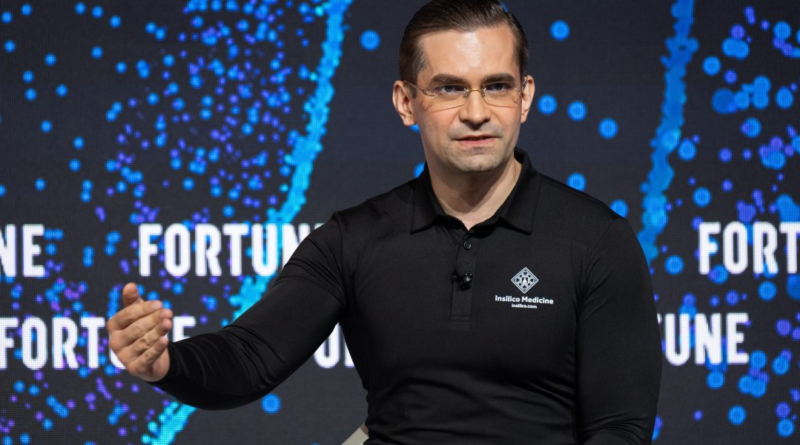Only an AI breakthrough can help humans live longer, argues drug developer: ‘We need a ChatGPT moment in longevity’
The dream of extending human life beyond the limits of our frail body is running up against a genetic brick wall.
In a study published this year in the Lancet medical journal, researchers argued that while life expectancy is increasing, the onset of aging hardcoded into our DNA just means more years spent in poor health enjoying a lower quality of life.
Speaking to the Fortune Brainstorm AI Singapore conference, the founder and CEO of Insilico Medicine believes behavioral modification has exhausted its potential and only artificial intelligence can radically extend the average lifespan.
“Many [people] have optimized for diet, exercise, sleep and they still aged, got diseases and died,” Insilico’s Alex Zhavoronkov told participants on Tuesday. “We need to have something much more substantial, a big breakthrough, a ChatGPT moment in longevity.”
Insilico uses Google’s AlphaFold, which predicts the complex shape of proteins based on their sequence of amino acids, to help design new drugs using generative AI. Its idiopathic pulmonary fibrosis (IPF) treatment, a small molecule inhibitor known as INS018_55, is currently in phase II clinical trials.
For Zhavoronkov, AI is the only promising technology at our fingertips that harbors the potential to dramatically decelerate the effects of aging and age-related diseases in the immediate future at a cost-effective price.
That’s because there is only one part of the pharmaceutical process whose process is in a company’s control: discovering promising new molecules and antibodies. The second part of the process, testing them over lengthy periods, is largely static and requires a minimum amount of time to sufficiently prove safety and efficacy to regulators.
“Most people misunderstand how difficult and costly it is to develop a drug,” Zhavoronkov said. “I ran Insilico for ten years—my most leading drug is in phase II clinical trials.”
Deals worth $1.5 billion from selling promising drug candidates
Assuming all goes well, it could still be another few years before INS018_55 receives approval.
Despite all the research undertaken to this point, Zhavoronkov said no drug has been proven to lengthen human life. He pointed for example to experiments conducted using rapamycin, and its class of chemical inhibitor derivatives called rapalogs, which not been found effective despite consistent evidence that they work in mice.
Zhavoronkov believes AI can fundamentally reduce the time required to discover new molecules and antibodies by at least 50% and in some cases as much as 70%, while cutting the ensuing costs by 90%.
For smaller drug companies like Insilico that may lack the resources to see all their drugs through the lengthy stages of clinical trials, this opens the door to generating revenue by selling them on to larger pharma groups that do.
Zhavoronkov said his team already raked in $1.5 billion with such deals last year.
“Those AI drugs that [are] faster and cheaper to make are actually of higher quality,” the Insilico founder said, “so people are willing to pay a lot of money for it.”




